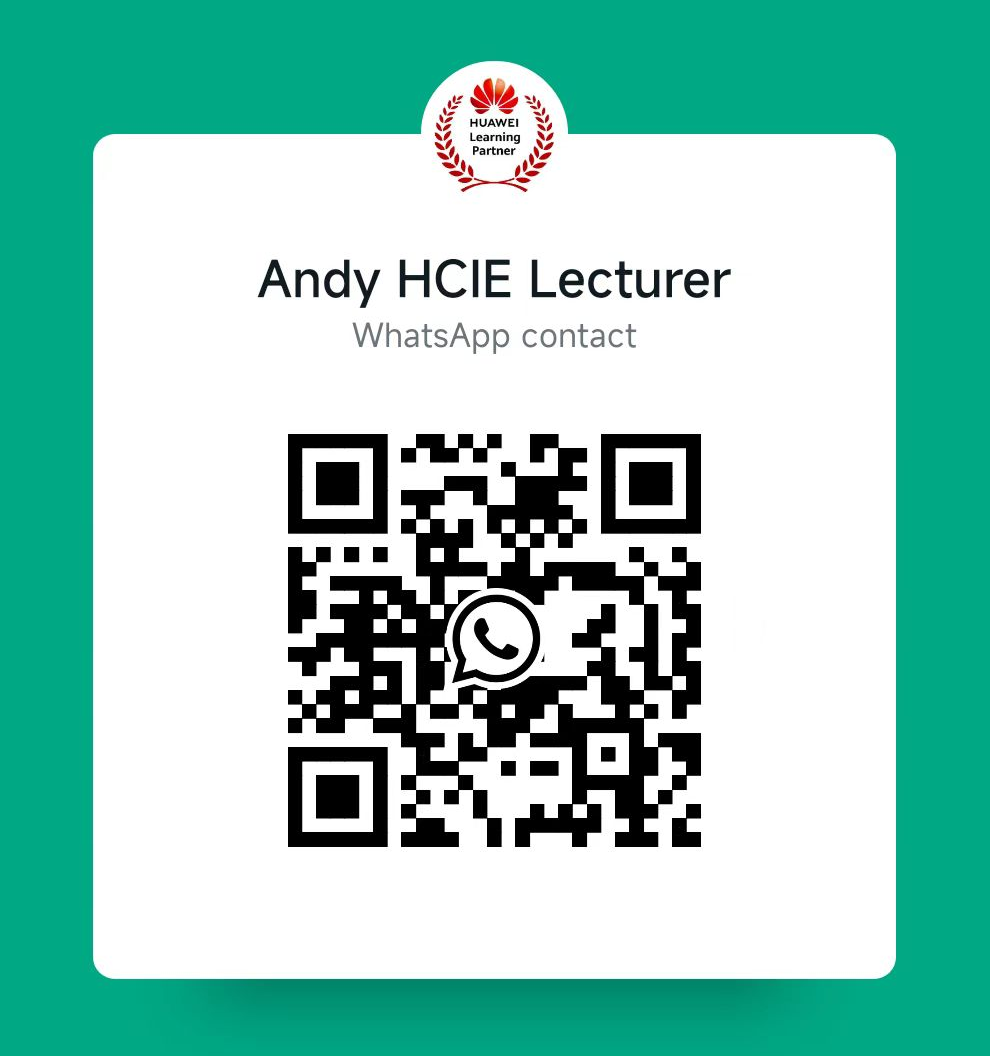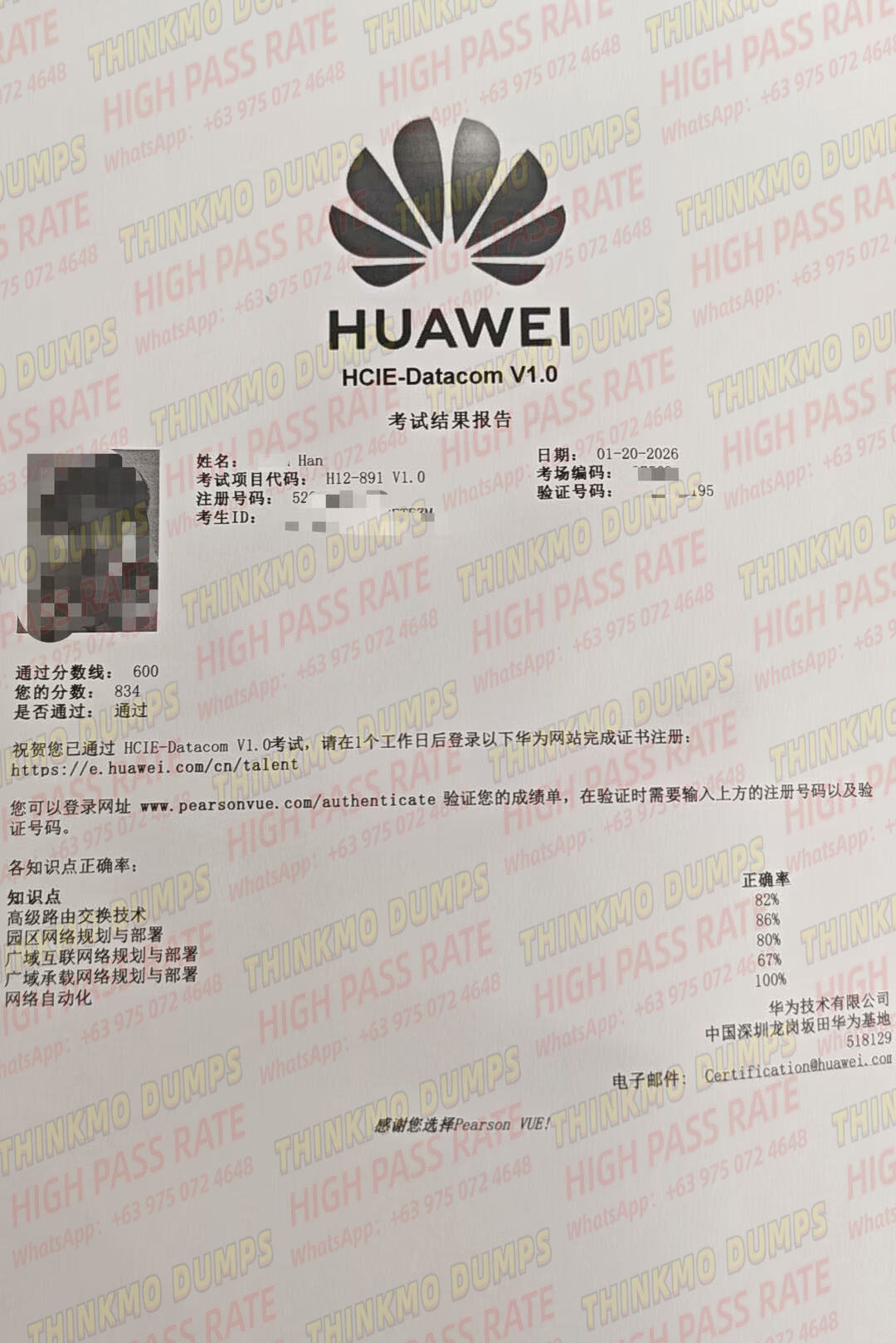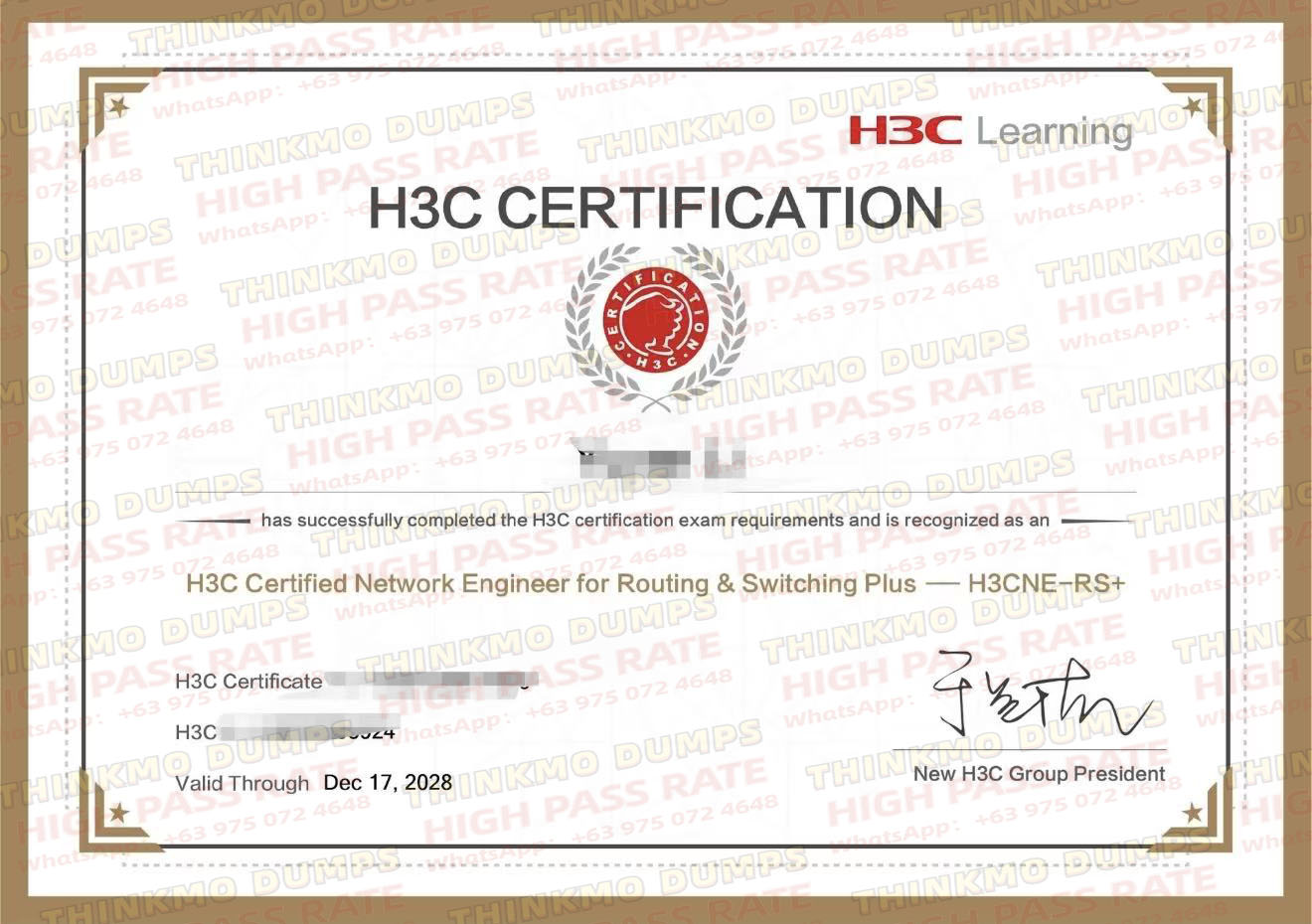Is Cisco Certification Difficult?Exam Difficulty & Preparation Tips
Update time:2025-09-05
Cisco Certification is one of the most recognized credentials in the networking field.It is divided into CCNA (Associate), CCNP (Professional), and CCIE (Expert), covering skills from basic network operations to enterprise-level architecture design.

The difficulty depends on the certification level, your networking foundation, and English proficiency (since exams are entirely in English, this is often a major challenge).In the IT industry, Cisco certifications are highly valued—especially by multinational companies and network equipment vendors.Certified professionals often earn 15–30% more than their non-certified peers.
1.Difficulty Analysis by Level
1) Entry Level: CCNA (200-301) – Beginner-Friendly
Positioning: Build basic network logic;relatively low difficulty.Main challenges are English wording and theoretical understanding.

Exam content:
Routing (30%)
Switching (25%)
IP services & security (20%)
Network automation (15%)
Troubleshooting basics (10%)
Core topics include TCP 3-way handshake, OSPF neighbor establishment, static routing, VLAN configuration, etc.
Exam format: 90-minute written test, passing score = 825/1000 (~70% correct). Question types: single choice (60%), multiple choice (20%), drag & drop (20%).Pass rate is relatively high.

Conclusion: Beginners can manage with 1–2 hours/day study over 1.5–2 months.Those weak in English should spend an extra week memorizing key terms.
2) Intermediate Level: CCNP (ENCOR + Elective) – Requires Foundation
Positioning: Solve enterprise-level networking problems;moderate difficulty.Recommended after CCNA or with 1+ year of networking experience.

Core exam: 350-401 ENCOR (networking fundamentals, wireless, security, automation).

Elective exams: e.g., 300-410 ENARSI (advanced routing & switching).Content includes BGP policies, OSPF troubleshooting, SDN basics, etc.

Challenge: Scenario-based questions (e.g., cross-regional service outage) require theoretical analysis + practical reasoning.Reading long English descriptions quickly to capture key info is crucial.
Conclusion: With 2 hours/day study, most candidates complete prep in 3–4 months.
3) Advanced Level: CCIE (e.g., Routing & Switching, Security) – High-Level Challenge
Positioning: Network expert-level ability;very difficult;recommended for 3+ years of networking experience.

Lab exam (8 hours total):
1.5h: Architecture design (write English design docs)
3h: Deployment (configure devices)
3.5h: Troubleshooting (solve 10+ complex faults)
Requires deep understanding of high-availability design principles and precise English technical writing.

Conclusion: One of the toughest IT certifications.Preparation typically takes 6+ months, ideally after earning CCNP.
2. Cisco Certification Preparation Methods
Overcome English barrier
Memorize key technical terms (e.g., “route redistribution”).
Create a personal glossary;review 10 terms daily.
Focus on extracting key info from question stems (device type, fault description) rather than word-for-word translation.
Use selected resources
Official Cisco materials.
Specialized dumps: ensure exam-focused practice with real exam-style multiple-choice, drag-drop.
Strengthen practical skills
Use simulators to practice configurations (e.g., VLAN, OSPF).
Focus on understanding principles, not memorizing commands.
3. Summary
Cisco certification difficulty scales with level.The core of preparation lies in mastering practical skills like configuration and troubleshooting, while the English challenge can be overcome through targeted terminology practice.
I'm your man who have the 100% valid dumps , buy it now for 50% off to clear your exam!
Click it ↓↓


The difficulty depends on the certification level, your networking foundation, and English proficiency (since exams are entirely in English, this is often a major challenge).In the IT industry, Cisco certifications are highly valued—especially by multinational companies and network equipment vendors.Certified professionals often earn 15–30% more than their non-certified peers.
1.Difficulty Analysis by Level
1) Entry Level: CCNA (200-301) – Beginner-Friendly
Positioning: Build basic network logic;relatively low difficulty.Main challenges are English wording and theoretical understanding.
Exam content:
Routing (30%)
Switching (25%)
IP services & security (20%)
Network automation (15%)
Troubleshooting basics (10%)
Core topics include TCP 3-way handshake, OSPF neighbor establishment, static routing, VLAN configuration, etc.
Exam format: 90-minute written test, passing score = 825/1000 (~70% correct). Question types: single choice (60%), multiple choice (20%), drag & drop (20%).Pass rate is relatively high.
Conclusion: Beginners can manage with 1–2 hours/day study over 1.5–2 months.Those weak in English should spend an extra week memorizing key terms.
Recommended resources: CCNA dumps to practice terminology-heavy multiple-choice and drag-drop questions.
2) Intermediate Level: CCNP (ENCOR + Elective) – Requires Foundation
Positioning: Solve enterprise-level networking problems;moderate difficulty.Recommended after CCNA or with 1+ year of networking experience.
Core exam: 350-401 ENCOR (networking fundamentals, wireless, security, automation).
Elective exams: e.g., 300-410 ENARSI (advanced routing & switching).Content includes BGP policies, OSPF troubleshooting, SDN basics, etc.
Challenge: Scenario-based questions (e.g., cross-regional service outage) require theoretical analysis + practical reasoning.Reading long English descriptions quickly to capture key info is crucial.
Conclusion: With 2 hours/day study, most candidates complete prep in 3–4 months.
Recommended resources: CCNP dumps with scenario-based practice—focus on troubleshooting and case questions.
3) Advanced Level: CCIE (e.g., Routing & Switching, Security) – High-Level Challenge
Positioning: Network expert-level ability;very difficult;recommended for 3+ years of networking experience.
Lab exam (8 hours total):
1.5h: Architecture design (write English design docs)
3h: Deployment (configure devices)
3.5h: Troubleshooting (solve 10+ complex faults)
Requires deep understanding of high-availability design principles and precise English technical writing.
Conclusion: One of the toughest IT certifications.Preparation typically takes 6+ months, ideally after earning CCNP.
Recommended resources: CCIE mock exam dumps to build speed and accuracy in full-length scenarios.
2. Cisco Certification Preparation Methods
Overcome English barrier
Memorize key technical terms (e.g., “route redistribution”).
Create a personal glossary;review 10 terms daily.
Focus on extracting key info from question stems (device type, fault description) rather than word-for-word translation.
Use selected resources
Official Cisco materials.
Specialized dumps: ensure exam-focused practice with real exam-style multiple-choice, drag-drop.
Strengthen practical skills
Use simulators to practice configurations (e.g., VLAN, OSPF).
Focus on understanding principles, not memorizing commands.
3. Summary
Cisco certification difficulty scales with level.The core of preparation lies in mastering practical skills like configuration and troubleshooting, while the English challenge can be overcome through targeted terminology practice.
The best approach is to progress step by step: start with CCNA, move to CCNP, and finally CCIE if aiming for expert level.With dumps,candidates can sharpen both knowledge and exam-readiness.
Cisco certifications are highly valued worldwide, especially in multinational companies—making them a strong career accelerator for networking professionals.I'm your man who have the 100% valid dumps , buy it now for 50% off to clear your exam!
Click it ↓↓

Hot article
-
 1
1 1. ThinkMo Precise Question Bank: Ace HCIE Written
上传:2026-01-23
-
 2
2 Triple H3CNE/H3CSE Passes | ThinkMo Christmas Succe
上传:2025-12-25
-
 3
3 Success Streak: ThinkMo’s Dec HCIE-Datacom Win
上传:2025-12-24
-
 4
4 ThinkMo Guide: Cisco & Huawei Certification Com
上传:2025-12-22
-
 5
5 Pass CCIE/CKA Exams with ThinkMo’s Top Question B
上传:2025-12-19








